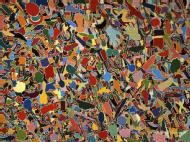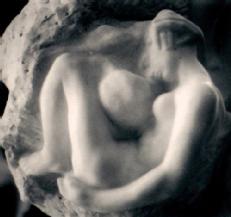An infinite sphere, whose centre is everywhere and whose circumference is nowhere
A performance followed by debate on the transformations of a paradoxical cultural pattern.
The definition of God as 'an infinite sphere, whose centre is everywhere and whose circumference is nowhere' has its roots in the Liber XXIV philosophorum, a Latin booklet by an anonymous author, which consists of 24 commented definitions of what God is. It has been ascribed to the fourth-century grammarian and philosopher Marius Victorinus, but the earliest extant manuscript dates back to the beginning of the thirteenth century.
This expression has had a very fertile and interesting reception from the Middle Ages till nowadays, being frequently quoted and reworked by poets, philosophers and scientists to account for God, the universe or the self.
The aim of this project is to stage a public performance, followed by a debate, in which passages of various elaborations of the second definition of the Liber from the Middle Ages to the Renaissance are introduced and then read aloud both in the original language (Latin, vernacular) and in the English translation.
A changing backdrop will provide a visual representation of the metamorphoses in the uses of the sphere through the centuries, which ultimately reflect the changes of epistemological ideas in Western culture.
This project will allow students and researchers from both the Arts and Mathematics faculties to interact with one another and share their expertise. This will lead to a more-in-depth appreciation of the texts in the way they were conceived at their time, when the figure of the philosopher and the scientist coexisted in the same intellectual sphere. It will also be the starting point of a discussion on the relationship of theological and mathematical concepts into our historical and cultural background.
‘The text of the Book of the 24 philosophers is extremely topical […] The modern time till nowadays is not, as we generally say in a superficial way, a period of atheism and abandonment of faith, but a time in which God has become […] a logico-mathematical structure, which is the real symbolic Gestell of our age […] we haven’t yet understood how science is still and unbelievably deeply theological’
Marc Richir, And God became Space
The programme includes
The Book of the 24 philosophers (Liber XXIV philosophorum), II
Alan of Lille, Discourse on the Intelligible Sphere
Jean de Meun, The Romance of the Rose, vv. 19081-19092; 19117-19148
Dante, The Divine Comedy, Paradiso 33, vv. 58-75; 115-145
François Rabelais, The Third Book of Pantagruel, 13
François Rabelais, The Fifth Book of Pantagruel, 47
Marsilio Ficino, Platonic Theology, XVII, 3
Nicholas of Cusa, On Learned Ignorance, II, 11-12
Giordano Bruno, Cause Principle and Unity, Fifth dialogue
Podcast of the introductory passages (by Gabriella Addivinola and Maude Vanhaelen)
Download
Video of the performance
Mathematical representations (by Andrew Chan)
Mathematical representations 2
Auguste Rodin, The Hand of God, 1898. Rodin Museum, Paris
The Final Performance was held on Tuesday 22nd May 2012 in the
Humanities Studio, University of Warwick

Alighiero Boetti, Tutto, 1994. Museum fur Moderne Knust, Frankfurt am Main

